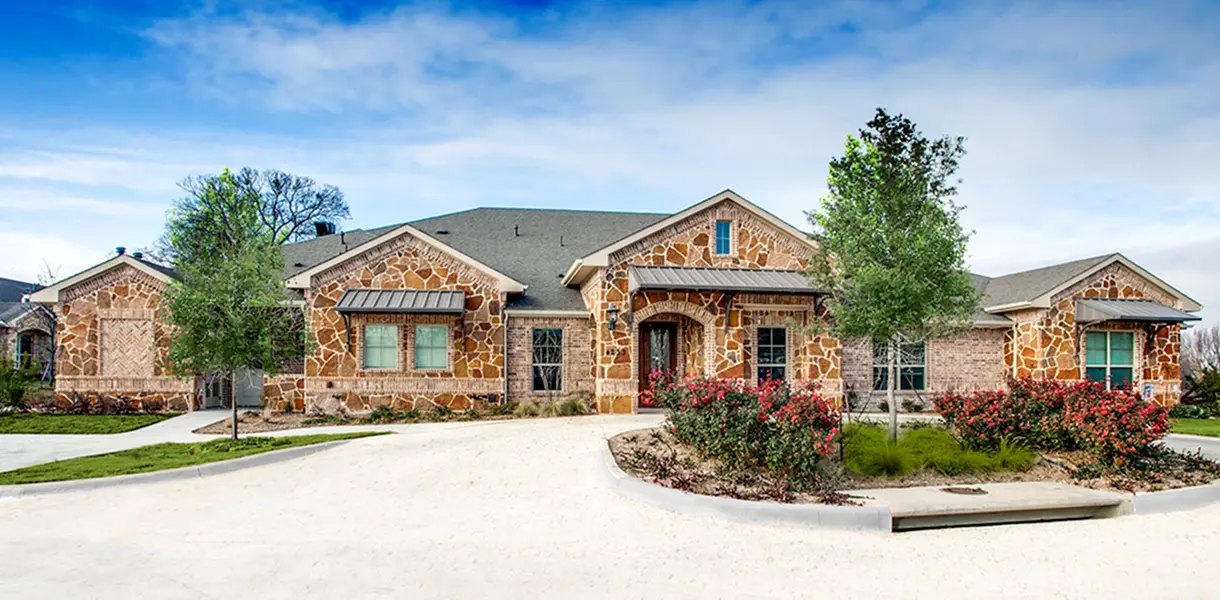
6 Questions to Consider When Evaluating Memory Care
Primary caregivers of individuals experiencing memory loss often face difficult questions when exploring care options. Is taking care of them at home best? Would professional support in a memory care community be beneficial? How would the transition impact their current situation?
This simple guide explores six key questions to guide the process of making an informed decision about memory care that considers the benefits to everyone involved.
Six Questions to Consider As a Caregiver for a Senior with Dementia:
Does My Loved One with Memory Loss Have a Structured Routine?
For individuals with cognitive impairments, predictability can reduce anxiety and confusion. A structured routine looks like consistent mealtimes, frequent engaging activities, and support for daily personal tasks, all of which help to minimize disruption and promote well-being. One of the most significant benefits of 24/7 memory care is the reliability of a structured daily routine.
Is my Loved One’s Home a Safe and Secure Environment for Dealing with Memory Loss?
Keeping a loved one who is experiencing cognitive decline safe is a common concern for families. Consider if their current living space has built-in security features to protect them from wandering and other potential dangers. Features like magnetic door locks and secure outdoor spaces, such as a patio and backyard, allow residents to enjoy their surroundings safely. This kind of built-in security offers peace of mind that can be difficult to maintain in a standard home setting. At Avalon Memory Care, our communities are specifically designed to provide a welcoming, comfortable, home-like environment while prioritizing resident safety.
Is My Aging Loved One Experiencing Enough Social Engagement?
Loneliness and isolation can be common for those with memory-related illnesses. Consider whether your loved one is consistently getting the social interaction they need. Our communities are designed to create a warm and inviting environment that fosters a “family feeling” among residents. This sense of community helps residents bond with each other and with our care team, creating an atmosphere that feels like a family.
Does Their Caregiver Have Time for Self-Care?
Caring for a loved one with cognitive decline is a demanding role. It’s important to reflect on personal well-being and access to support for avoiding caregiver burnout. Moving a loved one into memory care can actually mean more quality time spent together, as the primary role shifts from caregiver back to family member.
Are There Any Benefits Only Available in Memory Care Communities?
At Avalon Memory Care, our approach is centered on a single focus: memory care. We tailor our care model to meet the unique physical, emotional, and social needs of each person with Alzheimer’s, dementia, or other cognitive impairments. Our specialized care system is designed to reduce the need for medications, improve overall well-being, and preserve autonomy.
How is Their Dementia Progressing?
If you’re wondering what stage of dementia your loved one is in, you don’t have to guess. We have a free, five-minute tool, the FAST (Functional Assessment Staging Test) scale that can provide a clearer understanding of the progression of their cognitive impairment.
Take the Free 5-Minute Memory Assessment Tool
Taking the Next Step
The decision to move to memory care requires thoughtful consideration. We understand the complexities and challenges families face when making care plans for their loved ones. To learn more about Avalon’s Memory Care Communities, contact our team to schedule a tour or to request more information.
See More Articles
-
Understanding Parkinson’s Disease and Dementia
Parkinson’s disease is an incurable neurological disorder, with progressively worsening complications. Perhaps the most well-known symptom of Parkinson’s is a hand tremor, but it can also cause speech changes, muscle rigidity, and impaired posture. Eventually, as the disease progresses, more than half of all individuals with Parkinson’s will require dementia care. This particular type of
-
The Long Goodbye: Understanding Anticipatory Grief and Dementia
When you have a family member who is suffering from dementia, it’s not unusual to find yourself experiencing sharp and sudden emotions. The gradual loss of a loved one is, in many ways, comparable to experiencing the death of someone close to you. With progressive dementia, this sense of loss is accompanied by another emotion
-
Hope For the Future: Emerging Alzheimer’s Research
According to the latest statistics, as many as 5.5 million Americans are living with Alzheimer’s disease, and its prevalence is only expected to rise in the next few decades. At the same time, however, research into treatments for the condition is accelerating. With every passing year, we move a little further down the road toward
Testimonials
Downloadable Resources
We Are Avalon
Discover the heart of our community; download ‘We Are Avalon’ to get to know our dedicated team and our commitment to providing a warm, family-like environment.
Transitional Care Guide
If you’re considering a transition, we’re here to help; download our Transitional Care Guide for compassionate guidance through each step of the process.
Schedule a Tour
Visit one of our 30+ campuses and experience our unique approach to memory care.












